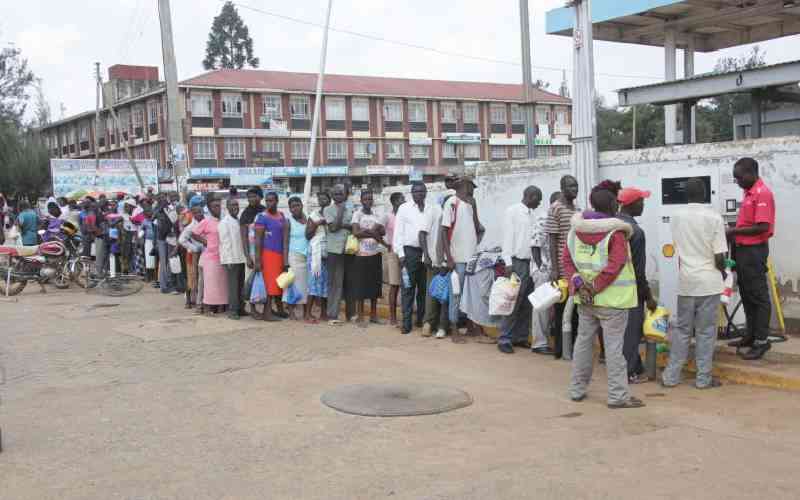×
The Standard e-Paper
Fearless, Trusted News

The government has signalled a U-turn on ending the fuel subsidies amid rising pressure to bring down the high cost of living.
Treasury says it will buttress the fuel prices stabilisation mechanism through legal reforms, marking a departure from an earlier plan to remove the kerosene and diesel subsidies in a bid to trim the fiscal deficit.






